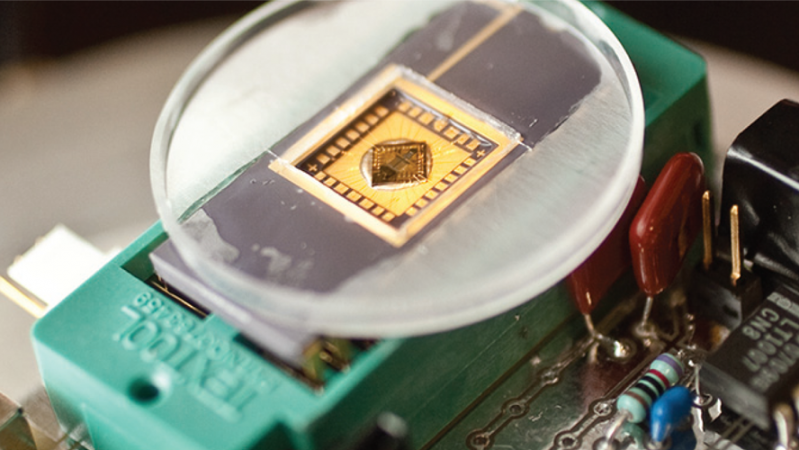
Bio-Electrical Engineering is the application of electronic and photonic engineering to biology and medicine. Modern biomedicine increasingly relies on cutting-edge technology to advance our understanding of complex biological processes and to improve healthcare outcomes. Bioelectrical engineering at Lehigh encompasses the development of clinical therapeutic and diagnostic equipment/sensors and sophisticated devices for biological experiments, and the application of engineering principles to the study of biology.
One of the areas of research pursued by faculty in the bioelectrical engineering group is the development of biological micro-electromechanical systems (bio-MEMS). Living cells and tissues are incorporated into microdevices, which are then used to study mechanisms of thought and memory, mechanical properties of cells, or applications in biosensing and drug screening. Another research direction is the use of optical coherence tomography (OCT) for non-invasive imaging of hemoglobin concentrations, blood oxygen saturation, water and lipid content, and hemodynamics in the brain and in different types of cancer. In addition, biosensors based on surface plasmon resonance (SPR) in metal nanostructures are being developed for label-free, real-time, multiplexed and highly sensitive biomolecule detection. Bioelectrical engineering faculty are also involved in interdisciplinary collaborations with many groups in the P.C. Rossin College of Engineering and Applied Science and in the College of Arts and Sciences, including groups in mechanical engineering, materials science, chemical engineering, bioengineering, and physics.
Research Areas:
- Surface Plasmon Resonance nanosensors
- Optical Coherence Tomography (OCT)
- Diffuse optical spectroscopy
- Bio- MicroElectroMechanical Systems (bioMEMS)
- Multiple Electrode Arrays (MEAs)
- Microfluidics
- Patterned neuronal networks
- Biomechanics of individual cells
- Living tissue – microdevice integration
Faculty:
Affiliated Research:
